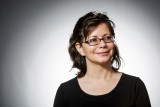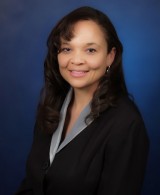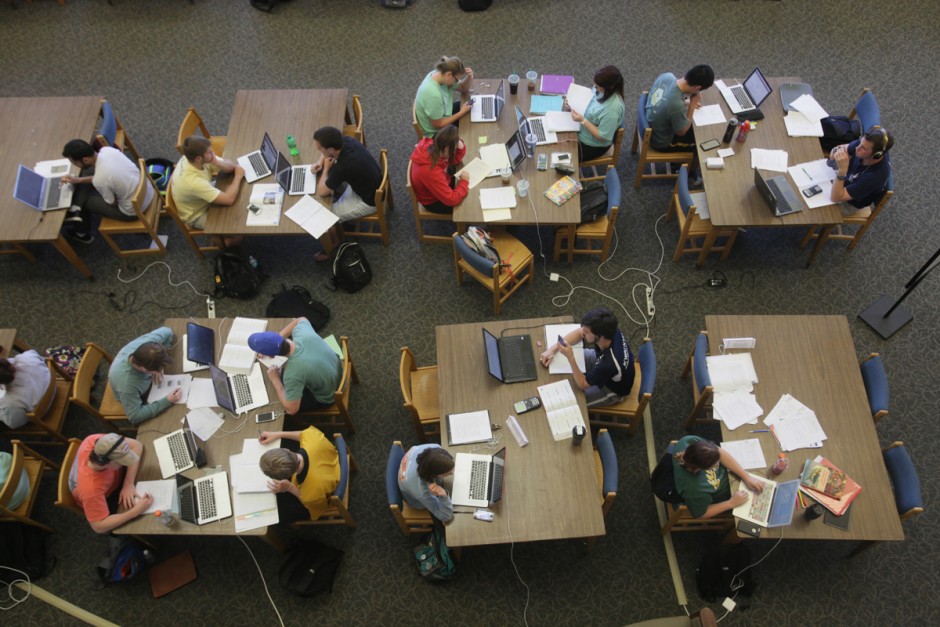The University of Missouri master’s program in library and information science (LIS) has been accredited by the American Library Association (ALA) since the 1966-1967 academic year. When the ALA withdrew its accreditation of the MU library science program in July, the program staff, faculty and alumni were dismayed.
The ALA is the oldest and largest library association in the world. According to the ALA, many employers require an ALA-accredited master’s degree for most professional-level positions in academic, public or school libraries.
In 2012, the library science program was put on conditional accreditation by the ALA, meaning that the program would be evaluated for accreditation in three years rather than the full accreditation cycle of seven years. According to ALA, the accreditation process includes the assessment of educational quality and continued enhancement of educational operations.
When the program was placed on conditional accreditation in 2012, faculty and an advisory council, consisting of practicing librarians from across Missouri and Nebraska, were asked to restate the program objectives in terms of expected outcomes of the program and to develop measures to validate that the program was meeting these expectations.

“Our faculty and advisory council defined outcomes and developed tools to measure the outcomes,” says Sanda Erdelez, a professor in the Library and Information Science Program who coordinated the accreditation activities. “It was the limited time-frame allotted to measure these outcomes, combined with a misunderstanding of how our program operates that led to the withdrawal of our program accreditation in 2015. The ALA Committee on Accreditation never was questioning the quality of our faculty or of our program; rather, they were questioning our objective measures and outcomes.”
Shortly after the ALA’s decision to withdraw accreditation, the University of Missouri notified the organization of its intent to appeal. After review by an appeals committee, the American Library Association decided the MU program did indeed meet its standards of excellence and granted full seven-year accreditation to the MU program. A review for the next accreditation cycle is scheduled for fall 2022.
The Program
MU’s library science master’s degree program is offered through the School of Information Science and Learning Technologies and is one of five units in the University of Missouri College of Education. The graduate program is dedicated to excellence in librarianship.
MU’s program, the only ALA-accredited library science program in the state, attracts students from near and far. Earning a library science degree from an ALA-accredited institution provides students with flexibility in the variety of librarian jobs for which they can apply.

“As the only ALA-accredited library science institution in the state of Missouri, we prepare students for a rapidly changing field,” says Denice Adkins, associate professor in the School of Information Science and Learning Technologies and LIS program chair. “Technology has changed the way librarians work; we must be information experts in the information age. Through the structure of our program, we offer face-to-face and hybrid instruction (the combination of face-to-face and online instruction) at five different locations, preparing students far beyond the Columbia campus for careers in library and information science.”
“The curriculum reflects the critical issues facing the profession as well as the foundations of the field,” says Joi Moore, associate division director and professor in the School of Information Science and Learning Technologies. “The Library and Information Science program prepares students for dynamic and emerging careers.”
Time of Turmoil, New Specialization
Before the program regained full accreditation in the fall, faculty and the advisory council developed strategic initiatives that could communicate the strengths of the program.
“We realized that students were already taking elective courses outside of the program in educational technologies to better prepare themselves for the workforce,” Erdelez said. “We already had the resources for this specialization, and many of our students were already taking advantage of the interdisciplinary component. It was during the appeal process that this exceptional specialization emerged: e-Learning.”
The e-Learning specialization offered by the Library and Information Science program prepares students for work in academic libraries. Librarians work with students using information resources and services, both on campus and online. E-Learning librarians help connect distance students with the resources they need when they do not have the capability of physically visiting campus libraries.
E-Learning librarians also help ensure that faculty and students have the resources they need to succeed.
“Today’s classrooms have moved far beyond the professor simply standing in front of a room full of students,” Erdelez says. “Today, numerous educational technologies are used in the classroom, from iPads to apps. The e-Learning specialization will ensure our students continue to receive the best education to prepare them for the emerging demands of the workforce.”
Showing Support

The Library and Information Science program is nearing its 50th anniversary. Longevity is likely owed to the strength of the curriculum, faculty and staff dedicated to excellence in librarianship.
“We had an outpouring of support during the appeal process,” says Moore. “Past university chancellors, deans and faculty, as well as program alumni and current students, supported us throughout the process.”
Additional strategic initiatives emerged during the accreditation process, including strengthening the curriculum for school librarians and integrating that curriculum into the e-learning specialization, building a Digital Humanities Center for interdisciplinary work across campus, and developing a specialization in research data management and metrics.




